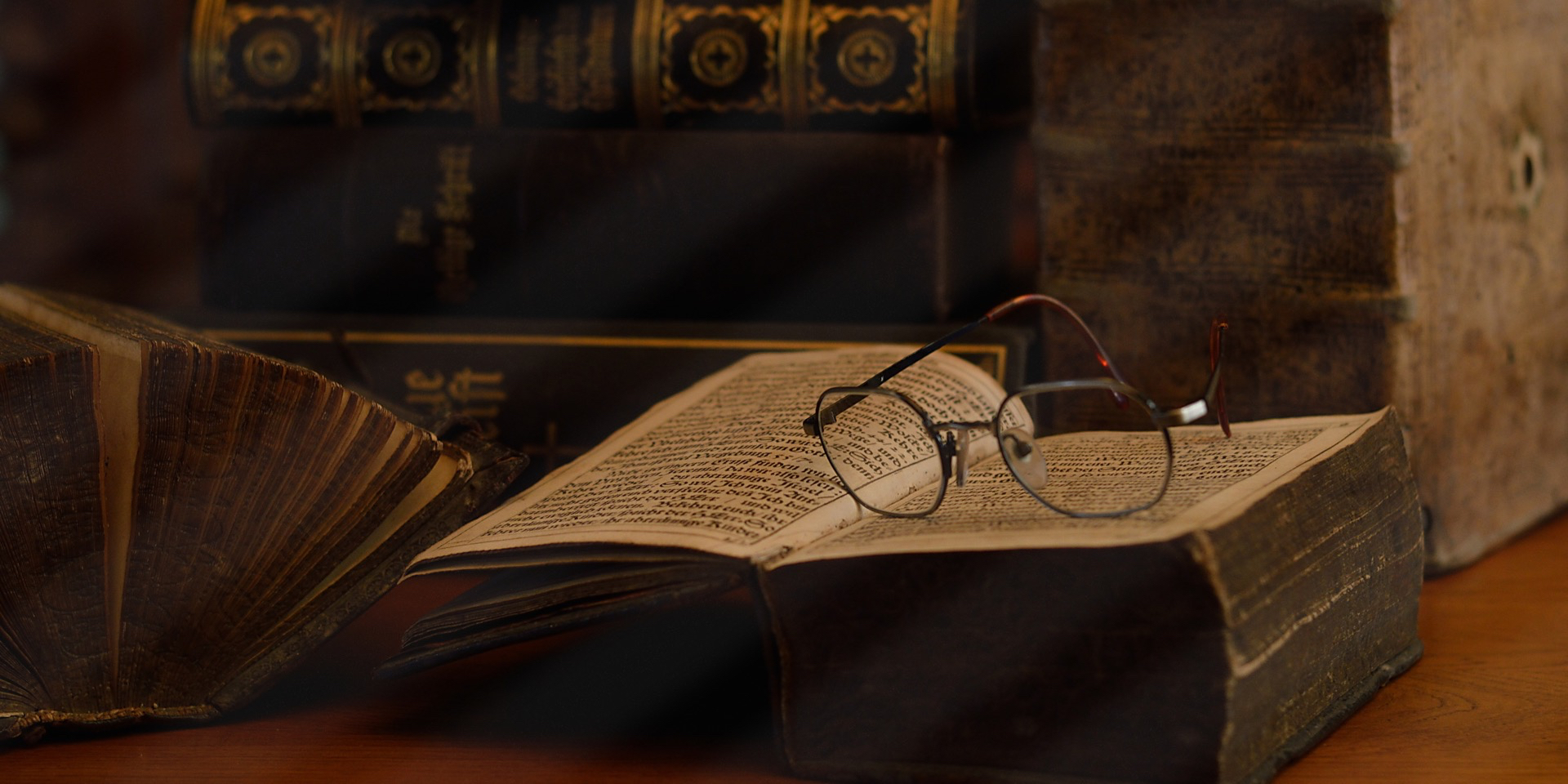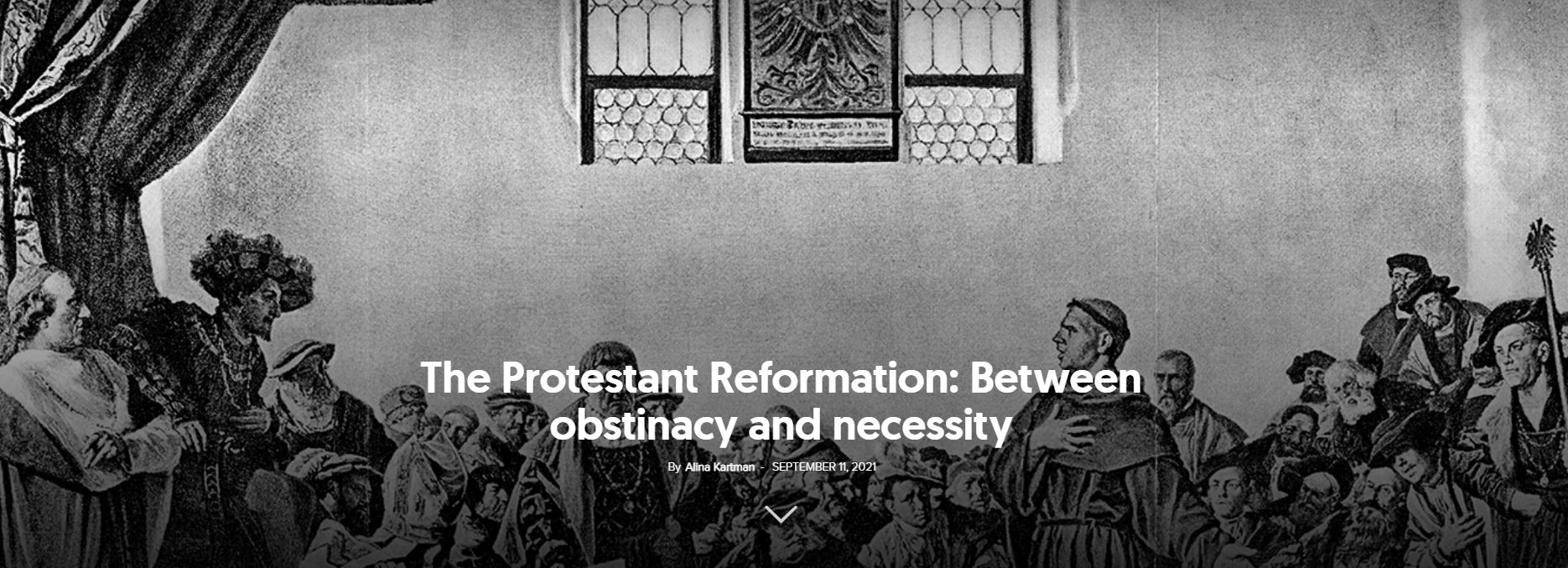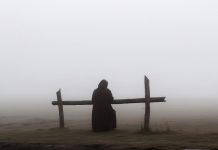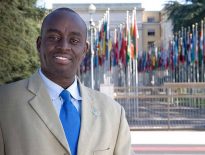Written in Latin by a 26-year-old Frenchman in less than a year, it is a book of 516 pages[1]. Published in Switzerland and dedicated to the French king from whom he was fleeing, it is the most important theological work of the Reformation.
The Ottoman crescent fluttering on the walls of Constantinople, the threat of devastating plagues, the Church’s crisis of authority and credibility, the return to the Bible, Gutenberg’s invention, and the birth of Protestantism were all background elements in the landscape of the 15th and 16th centuries.
It was at this time that the Frenchman John Calvin was born in the town of Noyon in 1509. When he was only 12 years old, his father sent him to the University of Paris to study philosophy and law. He learnt Latin, Greek, and Hebrew and became familiar with rhetoric and logic. To this humanist profile was added the influence of Erasmus and Luther. Persecution in France led him to flee, intending to devote the rest of his life to study and writing. Unfortunately, his future was more troubled than he had wished.
One city, one destiny
If in 1536, Calvin saw Geneva as no more than a place to stay for the night, Geneva, through the eyes of Guillaume Farel, saw in the author of the Institutes of the Christian Religion a spiritual leader whom the cause of the Reformation—welcomed there mostly for political reasons—needed. Thanks to Farel, Calvin tied his fate to Geneva forever. His work was only interrupted between 1538 and 1541, when he was expelled following a dispute between him and the city council.
Calvin’s expulsion from Geneva seemed to reopen the door to Catholicism. After receiving a written appeal from a prominent cardinal, the Council of Geneva asked Calvin to respond. His reply: “For though I am for the present relieved of the charge of the Church of Geneva, that circumstance ought not to prevent me from embracing it with paternal affection—God, when he gave it to me in charge, having bound me to be faithful to it for ever.” Little did he know how true those words would prove to be. Calvin’s reply to the Cardinal’s letter crushed the last Catholic attempt to retake Geneva.
On his return to Geneva, with growing support but not without opposition, Calvin persistently pursued the implementation of his “theocratic” civil-religious system. As well as reforming church organisation and worship, Calvin preached over 4,000 sermons (about 170 a year). He preached from the Old Testament during the week, from the New Testament on Sunday mornings, and from the Psalms in the afternoon. In the last year of his life, he continued to preach even when he was ill and had to be carried to the pulpit. On his deathbed, he mentioned his sermons before his writings.
A masterpiece of Reformed theology
A masterpiece of French classicism, Calvin’s Institutes are a complex mixture of demonstration, affirmation, and apologetics. Without limiting himself to the biblical text, Calvin enriched this work with his knowledge of the works of classical philosophy, the Church Fathers and rhetorical devices. As a rhetorician, Calvin wanted to be “hot, not cool”[2]—to maximise the impact of his discourse. His Institutes were aimed at theologians and future pastors, as well as laypeople who wished to broaden their knowledge.
John Calvin’s impact
Calvin’s work was far wider than his reforming activities in Geneva: he wrote commentaries on 56 books of the Bible, corresponded with many Protestant leaders, and followed the situation in Europe and England. He is said to have been better informed than some of the monarchs of his time.[3]
Calvin’s particular vision of education was put into practice through his writings, but especially through the founding of the Academy of Geneva, in 1559. Through these efforts, the tree of Calvinism took deep root and cast its shadow far into space and time.
Described by John Knox as “the most perfect school of Christ that ever was in the earth since the days of the Apostles,”[4] the Academy attracted enthusiastic students from all over Europe. Through Knox and others like him, the seeds of Calvinism reached Scotland, France, the Netherlands, and Hungary. Later, they crossed the ocean to America, with Calvin also recognised as one of the fathers of Puritanism. Calvinism lives on today in the heritage of the Reformed churches, including the Presbyterians, the Dutch and German Reformed churches, and many Baptists and Congregationalists. His opposition to the exercise of arbitrary power by monarchs can be seen as a key factor in the development of modern constitutional governments.
Praised by some and reviled by others, Calvin was and remains one of the most controversial figures in history. Respected even by popes, he was himself ironically described as “the Pope of Protestants” (Voltaire) or “the cruel and unopposed dictator of Geneva” (Oxford Dictionary of the Christian Church). Criticism was directed in particular at the theology of “double predestination” and the “theocratic” system that Calvin fought to impose in Geneva—with the implicit consequences of ignoring freedom of conscience, the controversial relationship between church and state, or the burning at the stake of Servetus.
Medieval and modern, balanced and unyielding, sometimes unsure of his vocation and yet determined to assert himself, Calvin himself was a paradox, with some seeing in him “two Calvins coexisting uncomfortably within the same historical personage.” It seems that it is precisely this constant inner vacillation that explains “both the success of the movement that came eventually to bear his name in his own time and its durability in later centuries under quite different conditions.”[5]




















